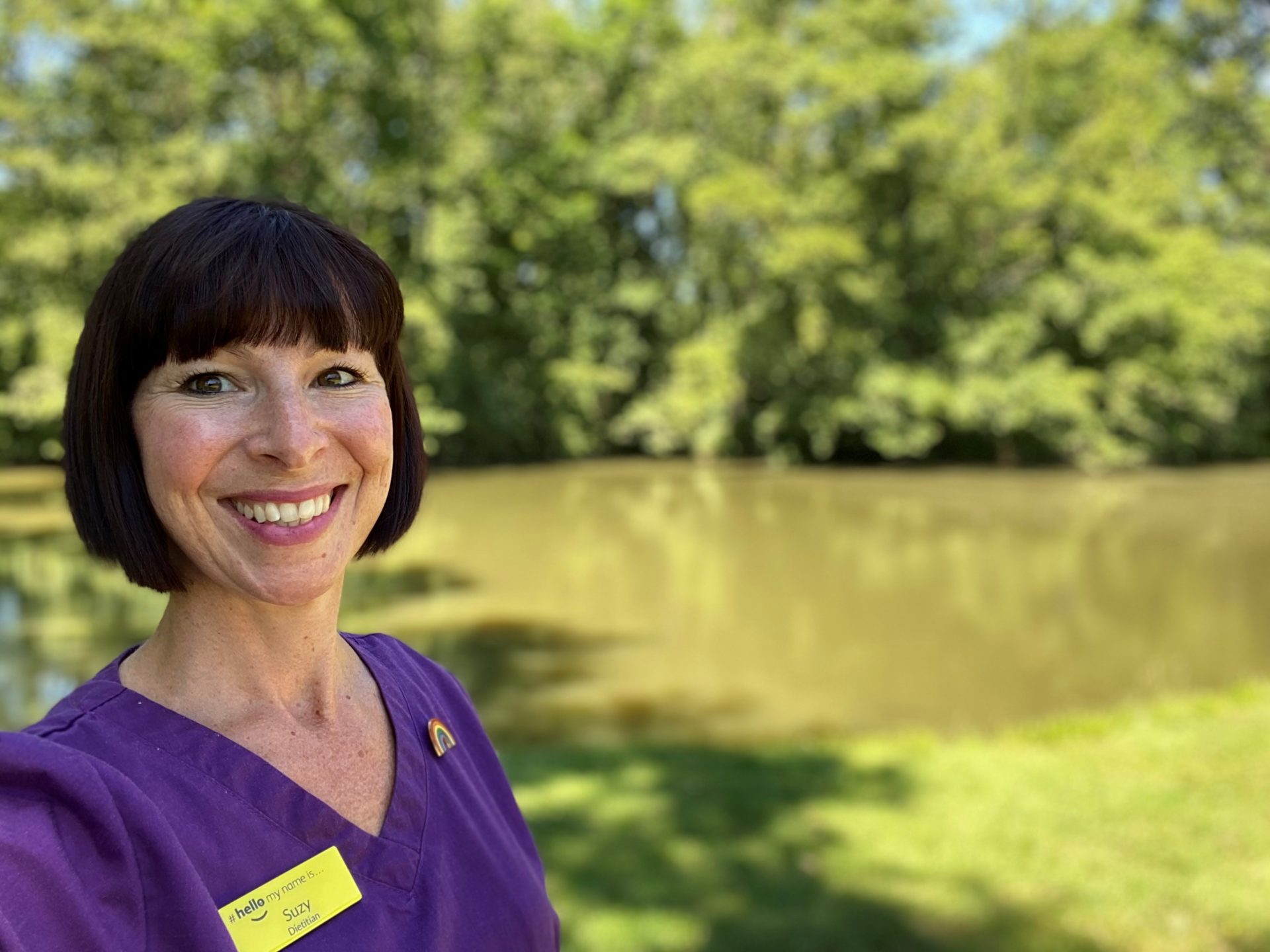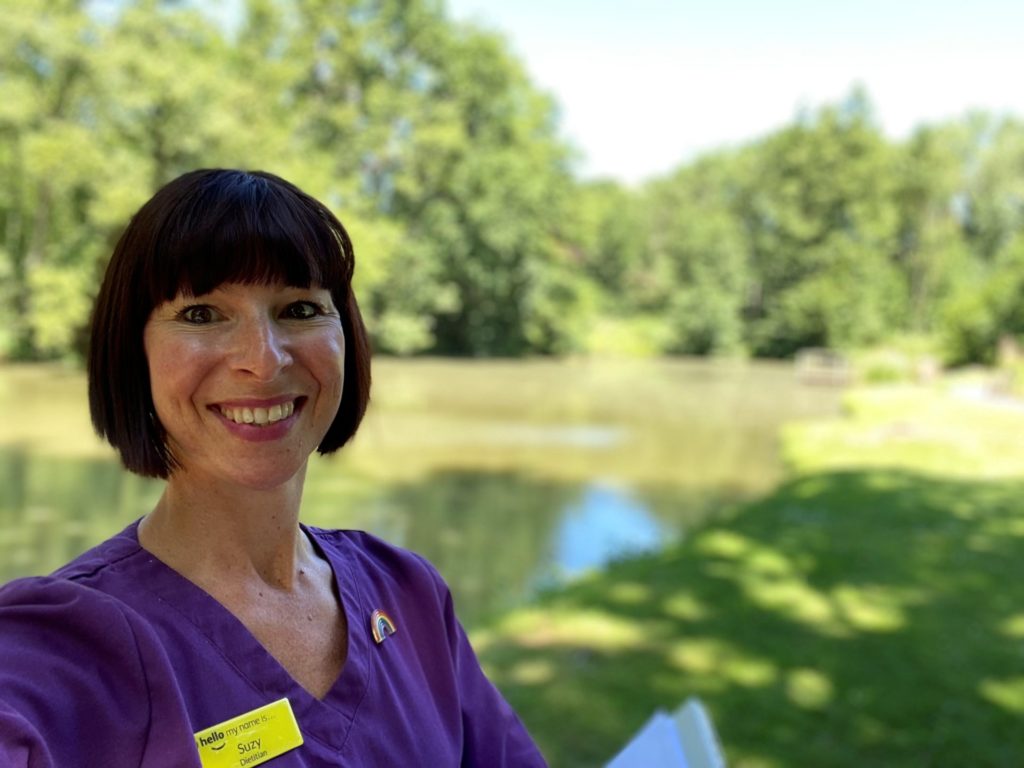
To celebrate National Dietitian Week, we held a Q&A session with Suzy Wilmer, who is our Dietitian Specialist at our Hollanden Park Hospital site.
Why did you become a dietitian?
When I was younger I always wanted to be in a job where I would help people and enjoyed biology at school. Originally, I wasn’t sure if I wanted to be a Dietitian or Nutritionist and so after completing an undergraduate degree in Nutrition and health sciences I worked as a dietetic assistant working with a catering dietitian and home enteral nutrition dietitian. This emphasised 2 areas which I enjoyed and helped me to get on to a post graduate degree in Dietetics. I have specialised in stroke for the last 12 years; worked as a Catering Dietitian for 2 years, and covered general dietetics after first qualifying. This has given me a rounded skill-set to support our patients at Hollanden Park Hospital.
What do you love about your role as a dietitian?
As a dietitian, I feel I can support patients well being and improve their QOL whether it be with an oral diet or via a feeding tube. I view my approach as more holistic, taking into account likes and dislikes, preferred timings to have feed or to fit in with therapy sessions. Every day is different but so rewarding to help my patients and support their relatives along their rehab journey. For some patients, seeing them begin to eat and return to either a modified diet or a normal diet is quite a big achievement. And even though I am a sole Dietitian, I have a full multidisciplinary team around me, all working towards the patients’ goals.
What is an average day in the life like for you at Renovo?
Having settled into my new position after 3 months, my average day depends on which day of the week it is. At the beginning of the week, my first job is to see what has happened over the weekend for my patients. Do any of them need reviewing urgently if anything has changed? If so, how will I fit a review in? We often have 1 or 2 patient meetings per day with some weeks busier than others. On Tuesdays, we have our MDT meeting and Thursdays we often have a therapy forums or training sessions. Once a month I will complete a MUST audit and every 6 weeks I chair a food as medicine meeting to discuss the menu and menu ordering process, MUST, food and fluid recording, to improve nutrition and hydration needs for our patients. Although the days are busy, they are not stressful. The grounds at HPH are just perfect for taking a stroll around the lake and reflecting on the week’s progress.
Why is a good diet so important in the Healthcare/Social Care Industry?
A good diet is not only important to our patients but also to our staff to help care for them. A good diet should be seen as a balanced diet, that has plenty of variety but also able to meet your 5 portions of fruits and vegetables per day, lower in fat/saturated fat, sugar & salt, high in fibre, and with plenty of fluids to keep hydrated. Our diet and activity levels have an impact on our weight, where the healthy body mass index is between 18.5-25kg/m2. For our patients that are unable to eat or drink, we are able to provide their nutrition via feeding tubes directly into their stomachs with already formulated feed or nutritional supplements to meet their nutritional requirements.
What advice would you give to anyone who wants to become a dietitian?
To qualify as a dietitian you are required to undertake an approved programme at a university. All dietetic programmes are approved by the Health and Care Professions Council (HCPC) and may also apply for accreditation by The British Dietetic Association (BDA). Working as a dietitian is enjoyable, diverse and secure. If you are interested in food, people, health and nutrition, it may be the job for you.

SHARE